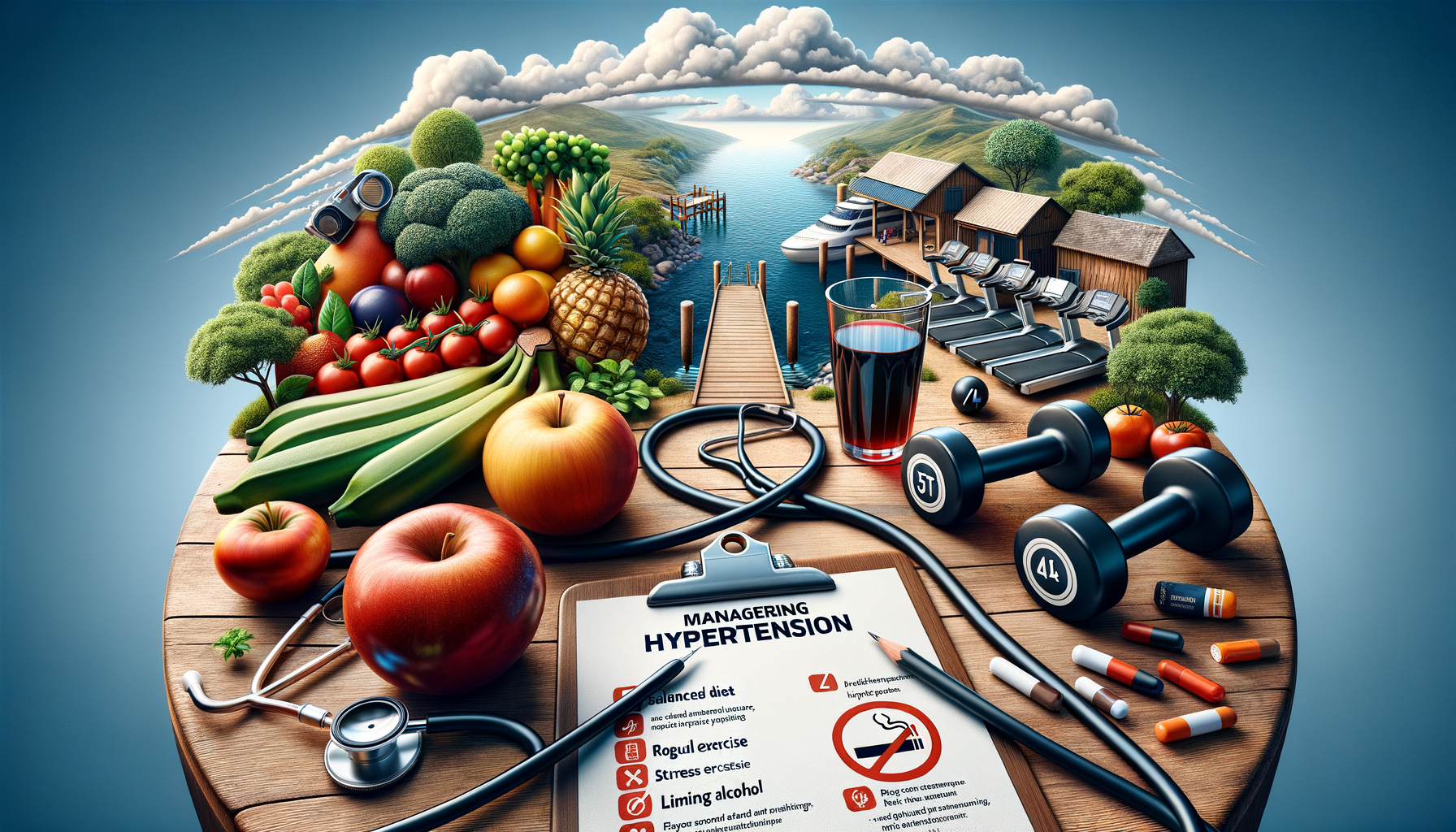Understanding Hypertension: A Silent Threat
Hypertension, commonly known as high blood pressure, is often referred to as the “silent killer” due to its asymptomatic nature. Despite its lack of obvious symptoms, hypertension can lead to severe health issues such as heart disease, stroke, and kidney failure. Understanding hypertension is crucial for effective management and prevention. Blood pressure is measured in millimeters of mercury (mmHg) and is recorded as two numbers: systolic and diastolic pressures. A normal reading is typically around 120/80 mmHg. Hypertension is diagnosed when readings consistently exceed 140/90 mmHg.
Several factors contribute to hypertension, including genetics, age, lifestyle, and dietary habits. While genetics and age are non-modifiable factors, lifestyle changes can significantly impact blood pressure levels. This knowledge empowers individuals to take charge of their health by making informed lifestyle choices. Regular monitoring and early detection are essential, as hypertension can be managed effectively with timely intervention.
Nutritional Approaches to Manage Hypertension
Diet plays a pivotal role in managing hypertension. A balanced diet rich in fruits, vegetables, whole grains, and lean proteins can help maintain healthy blood pressure levels. The Dietary Approaches to Stop Hypertension (DASH) diet is a highly regarded nutritional plan specifically designed to combat high blood pressure. It emphasizes the consumption of foods high in potassium, calcium, and magnesium, which are known to lower blood pressure.
Reducing sodium intake is also crucial, as excessive salt can lead to increased blood pressure. It’s recommended to limit sodium consumption to less than 2,300 milligrams per day, or even 1,500 milligrams for those with hypertension. Incorporating foods rich in omega-3 fatty acids, such as fish and flaxseeds, can also be beneficial. These dietary modifications, combined with regular physical activity, can significantly reduce the risk of hypertension and its associated complications.
Exercise and Physical Activity: A Natural Remedy
Regular physical activity is a cornerstone of hypertension management. Exercise helps improve heart health, reduce stress, and maintain a healthy weight, all of which contribute to lower blood pressure. Engaging in at least 150 minutes of moderate-intensity aerobic exercise, such as brisk walking or cycling, per week is recommended for individuals with hypertension.
Strength training exercises, performed twice a week, can also be beneficial. It’s important to choose activities that are enjoyable and sustainable to ensure long-term adherence. Exercise not only helps in controlling blood pressure but also enhances overall well-being, reducing the risk of other chronic diseases. By making physical activity a part of daily life, individuals can take proactive steps towards managing hypertension naturally.
Medications and Therapies for Hypertension
While lifestyle changes are effective for many, some individuals may require medication to manage their hypertension. Several classes of medications are available, each working through different mechanisms. Commonly prescribed medications include diuretics, beta-blockers, ACE inhibitors, and calcium channel blockers. These medications help lower blood pressure by relaxing blood vessels, reducing heart rate, or decreasing fluid volume in the body.
It’s essential for patients to work closely with healthcare providers to determine the most suitable medication and dosage. In some cases, a combination of medications may be necessary for optimal control. Adherence to prescribed medication regimens is crucial for effective management and prevention of complications. Regular check-ups and monitoring are important to ensure the medication is working as intended and to make any necessary adjustments.
Holistic Approaches and Stress Management
Holistic approaches, including stress management techniques, can complement traditional treatments for hypertension. Chronic stress is a known contributor to high blood pressure, making stress reduction an important aspect of hypertension management. Techniques such as yoga, meditation, and deep breathing exercises can help reduce stress levels and promote relaxation.
Additionally, practices like acupuncture and massage therapy have shown promise in lowering blood pressure. These therapies, along with a supportive social network and engaging in hobbies, can enhance overall quality of life. By addressing both physical and emotional aspects of health, individuals can achieve better control over their blood pressure and improve their overall well-being.




Leave a Reply